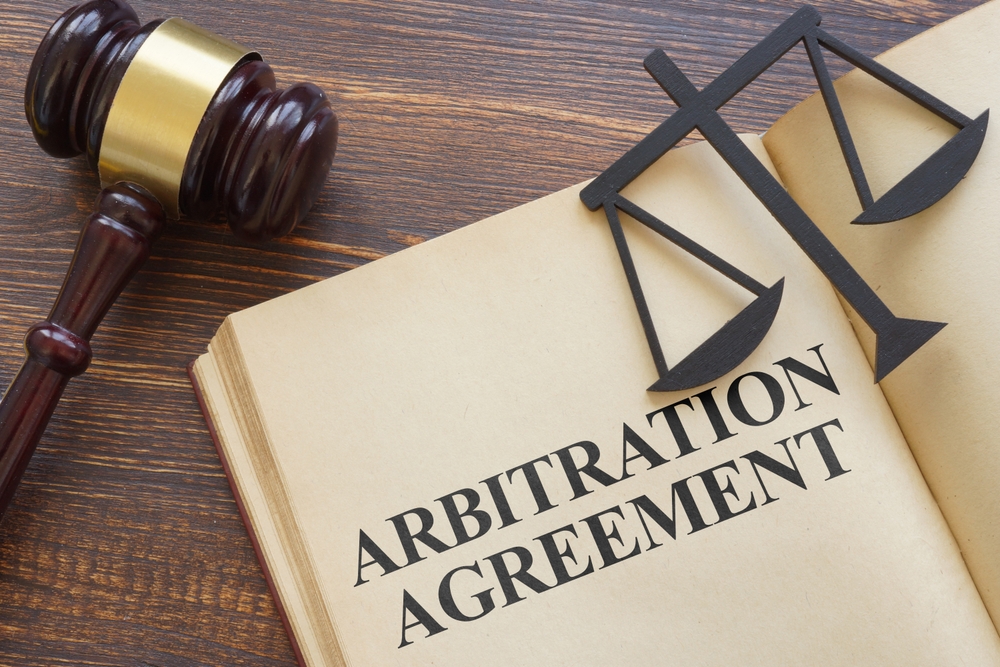- Contact Us Now (888) 883-6588 TAP TO CALL
Can An Employer Make An Employee Sign An Arbitration Agreement For A Workers’ Compensation Claim In California?

When a worker is injured on the job in California, the right to pursue workers’ compensation benefits is protected by law. Employers are required to provide access to medical treatment, disability benefits, and other core protections under the California Labor Code. Questions often arise about whether an employer can require an employee to sign an arbitration agreements that affects workers’ compensation claims. The issue is important because arbitration can change the way disputes are resolved, potentially impacting the employee’s path to benefits. California law has specific provisions addressing this matter, and not all arbitration agreements are enforceable. Understanding the legal framework is essential for employees and employers alike, as not every agreement presented in the workplace has legal effect when it comes to workers’ compensation.
Workers’ Compensation Carve-Out Arbitration Agreements In California
California law permits certain arbitration agreements for workers’ compensation claims, but only under very specific conditions. These are commonly referred to as “carve-out” agreements. Carve-out programs create alternative dispute resolution systems for workers’ compensation cases, but they must follow strict statutory and regulatory requirements.
According to California Labor Code sections 3201.5 and 3201.7, carve-out arbitration agreements may be enforceable if they are approved by the Administrative Director of the Division of Workers’ Compensation (DWC). These agreements allow disputes to be resolved outside the traditional Workers’ Compensation Appeals Board (WCAB) process, but they cannot strip injured workers of fundamental protections.
Requirements For Enforceability
For an arbitration agreement covering workers’ compensation claims to be enforceable in California, several conditions must be satisfied:
- DWC Approval – The Administrative Director of the DWC must approve the agreement. Without approval, the agreement has no binding effect.
- Statutory Compliance – The agreement must comply with Labor Code section 3201.5 (covering construction industry agreements) or Labor Code section 3201.7 (covering other industries).
- Regulatory Adherence – The agreement must also conform to California Code of Regulations, Title 8, sections 10200–10204, which provide detailed program requirements.
- Protection Of Core Rights – An injured worker must retain access to medical treatment, disability benefits, and other core statutory protections. The arbitration process cannot remove or reduce these benefits.
If an agreement fails to meet these requirements, California courts are unlikely to enforce it.
Key Aspects Of Carve-Out Programs
Carve-out programs in California offer a specific framework for alternative dispute resolution:
- Alternative Dispute Resolution – Disputes are resolved through arbitration or mediation instead of the traditional WCAB process.
- Eligibility – Both the employer and the labor union must qualify to participate in the carve-out program.
- Union Representation – A legitimate labor union must represent the employees covered by the agreement. Without union involvement, the carve-out program cannot proceed.
These safeguards ensure that arbitration agreements do not unfairly limit the rights of injured workers.
Arbitration Agreements Outside Carve-Out Programs
If an employer attempts to impose an arbitration agreement that has not been approved by the DWC and does not meet the requirements of sections 3201.5 and 3201.7, the agreement is generally unenforceable for workers’ compensation claims. California’s workers’ compensation system is designed to protect employees, and private agreements cannot remove statutory rights unless they are part of a legally recognized carve-out program.
An employee cannot be forced to give up access to medical care, disability benefits, or other core rights under state law. Even with a carve-out, those rights remain intact. Arbitration simply provides a different forum for dispute resolution, not a reduction of benefits.
How Workers Can Respond To Carve-Out Agreements
When presented with a carve-out arbitration agreement, an employee may not fully understand the implications. Because these agreements alter the traditional dispute process, legal review is often necessary. Our attorneys can determine whether the agreement has been properly approved, whether the employer and union are eligible, and whether the agreement protects core statutory rights. Without these protections, the arbitration clause may not stand.
Why California Limits Employer Control Over Workers’ Compensation Arbitration
Workers’ compensation is a statutory system created to protect employees who suffer work-related injuries or illnesses. The Legislature designed the system to guarantee prompt access to medical care and wage replacement without requiring employees to prove fault. Allowing employers to impose private arbitration agreements without oversight would undermine this framework. That is why carve-out programs require DWC approval and union involvement to ensure that agreements protect workers and comply with state law.
Frequently Asked Questions About Arbitration Agreements And Workers’ Compensation In California
Can An Employer Require An Employee To Sign An Arbitration Agreement For Workers’ Compensation?
An employer may present such an agreement, but it is not automatically enforceable. For enforceability, the agreement must be part of a DWC-approved carve-out program under Labor Code sections 3201.5 or 3201.7. Without such approval, the arbitration clause has no binding effect on workers’ compensation claims.
What Is A Carve-Out Program In Workers’ Compensation?
A carve-out program is an alternative dispute resolution system established through a collective bargaining agreement between an employer and a legitimate labor union. It allows workers’ compensation disputes to be resolved through arbitration or mediation rather than the WCAB. These programs must receive approval from the DWC Administrative Director.
Are All Employees Eligible For Carve-Out Programs?
No. Eligibility depends on the industry and union representation. Labor Code section 3201.5 applies to construction industry employees, while section 3201.7 covers other industries. The employees must be represented by a legitimate labor union, and both the employer and union must meet specific qualifications.
Do Carve-Out Programs Limit Workers’ Compensation Benefits?
No. Carve-out programs cannot reduce or eliminate core statutory rights. Injured employees retain access to medical treatment, disability benefits, and other essential protections under California law. Arbitration affects the dispute resolution process, not the benefits themselves.
How Does Arbitration Differ From Traditional Workers’ Compensation Proceedings?
In arbitration, disputes are resolved outside the WCAB by an arbitrator or mediator under the terms of the carve-out program. While arbitration may be faster and less formal, it must still protect statutory rights. The WCAB retains oversight authority to ensure compliance with the law.
What Happens If An Employer Uses An Unapproved Arbitration Agreement?
If an employer attempts to enforce an unapproved arbitration agreement covering workers’ compensation, the courts or WCAB are unlikely to recognize it. Workers retain their statutory rights, and the agreement generally has no effect on access to benefits.
Why Is Union Representation Required In Carve-Out Programs?
Union involvement ensures that employees have a collective voice in shaping the terms of the program. It prevents employers from unilaterally imposing arbitration systems that could disadvantage injured workers.
Can Carve-Out Programs Be Used In Non-Union Workplaces?
No. California law requires that carve-out programs involve legitimate labor unions. Non-union workplaces cannot impose carve-out arbitration agreements for workers’ compensation.
Call Law Office Of Joseph Richards, P.C. Today
Law Office of Joseph Richards, P.C. helps injured workers understand rights and protections under California’s workers’ compensation system. Arbitration agreements can create confusion, but the law requires strict compliance before any such agreement is enforceable.To speak directly with a California workers’ compensation attorney, call us today at (888) 883-6588 to receive your free consultation. The firm represents clients throughout the state of California and is committed to protecting injured workers from unfair practices.



















